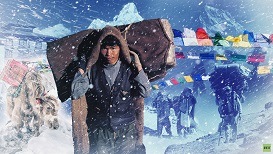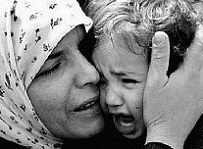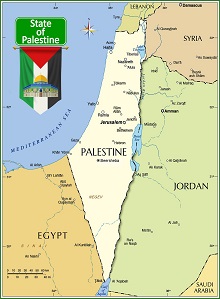 Superhumans with ‘Yeti blood’: These people are able to withstand extreme conditions, and science might finally know how
Superhumans with ‘Yeti blood’: These people are able to withstand extreme conditions, and science might finally know how

Vikram Sharma | A new Indian study has uncovered the secret of the Sherpa people’s genes that allows them to survive in the most extreme conditions | As he climbed Mount Everest’s Lhotse ice wall, Sameer Nicholas Patham struggled to breathe despite his supplementary oxygen. Here, where temperatures drop to -30° Celsius and the ambient oxygen is 70% lower than we breathe at sea level, every step was torture. ● But his Sherpa friends calmly and easily climbed past, carrying an average weight of 16kg. “They are superhumans,” recalls Sameer, who experienced firsthand what he describes as the incredible feats of the Sherpas, a Tibetan ethnic group globally known for their natural mountaineering skills. ● Yet if the same Sherpas were to visit Varanasi and fall sick, the hospital’s doctors would find that they had high blood pressure and low hemoglobin compared to average plains dwellers. Often such Sherpas were prescribed unnecessary medication. And though Chinese and American scientists had isolated the gene that allowed high-altitude adaptation, a biochemical analysis was always lacking – until a recent deep study by a team of Indian scientists investigated how Himalayans have survived in their challenging habitat for centuries. ● The Sherpa people are world-famous for high-altitude living and mountaineering. According to the 2011 census, there were some 16,012 Sherpas in India. Though there are other high-altitude Himalayan ethnic groups, the Sherpas dominate the portering profession to the extent that porters are commonly called “Sherpas” by outsiders. ● Other high-altitude ethnic groups include the Tibetans, inhabiting the Tibet Autonomous Region, Gansu, Qinghai, Sichuan and Yunnan in China; they are also found in India, Bhutan and Nepal. There are 182,685 Tibetans in India, scattered in Bengal, Himachal Pradesh, Arunachal Pradesh, Ladakh, Karnataka and Uttarakhand. Then there are the Lepchas, an aboriginal tribe of Darjeeling and Sikkim, in the Himalayas, calling themselves “Rong Migyit” (Lepcha people). They number 47,331. Additionally, the Bhutia tribe is scattered around the Himalayan region and number 229,954.




